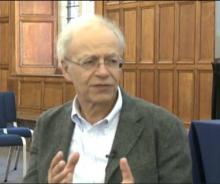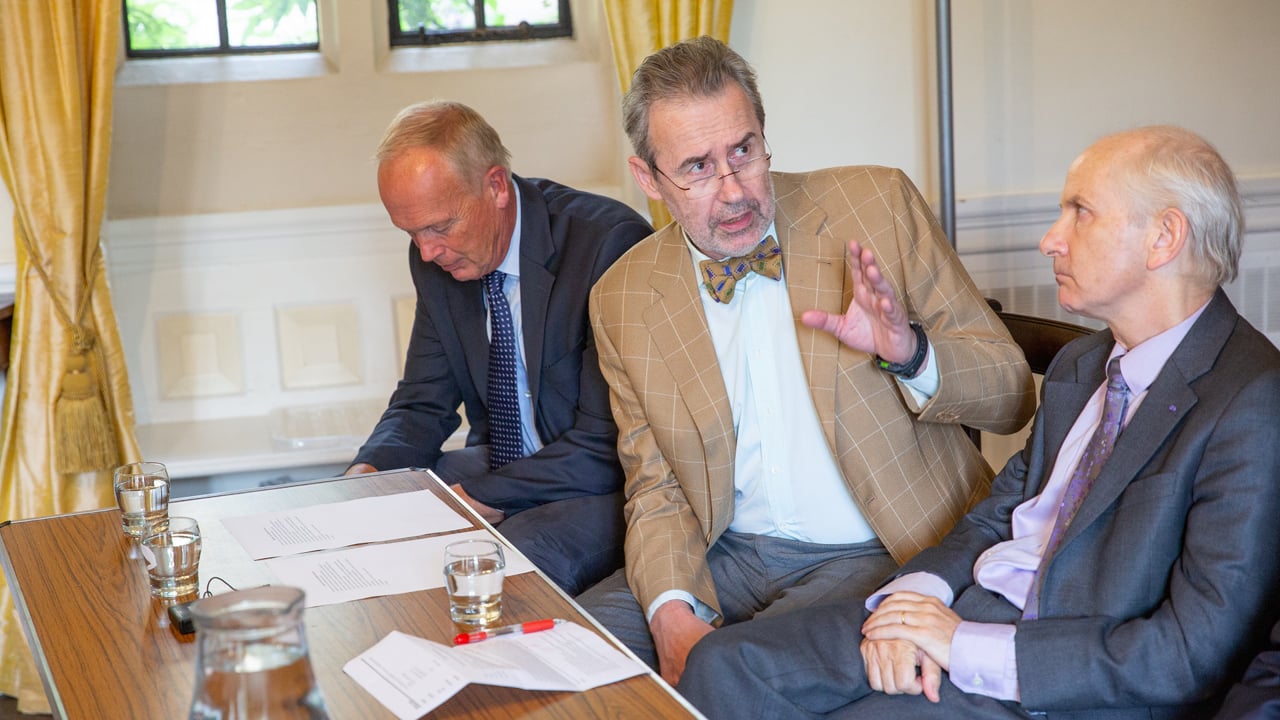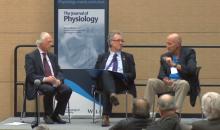

Peter Singer interviewed by Sung Hee Kim
In the 1970s Peter Singer challenged thinking about animals in his seminal book ‘Animal Liberation’. It changed the debate about the use of animals from an emotional issue to one of practical and reasoned ethics. Peter Singer is a utilitarian philosopher and the use of animals had usually been justified on utilitarian grounds. But Peter Singer threw out a challenge. He pointed out that for a utilitarian justification an equal consideration of interest had to be given to all parties involved in the utilitarian balance. It was clearly not in the interest of animals to be harmed. In the first chapter of his book he argued that ‘All animals are equal’. His second challenge was to ask the question on what grounds we could make a moral distinction between species in the ethical balance.
In a discussion with Sung Hee Kim for voices from Oxford, Peter Singer reveals what he calls the ‘decisive formative experience of my life’ at a lunch with a fellow student at Balliol College, an experience that led him to completely alter his views on the use of animals for food.
Faced with the choice of a plate of spaghetti with some ‘brown sauce on top’ or a salad, his friend asked if the sauce contained meat. It did, so he chose the salad. Peter Singer chose the spaghetti with the meat sauce.
Intrigued, he asked why his friend had avoided the meat. He expected
an answer about his health or some religious reason, but his friend told
him he didn’t think it was right to treat animals in the way they were
when turned into food. This experience set Peter Singer to begin
thinking about the moral status of animals and it led to the writing of
his book ‘Animal Liberation’.
“I don’t think we can justify participating in a practice that is
exploiting animals in the way it does.” Peter Singer became a vegan. But
for Peter Singer it is not simply an emotional issue about the love of
animals. It is an issue of practical ethics and morality. It was, he
says, the “first real issue in applied ethics that I took up, not merely
as an academic question, but that I wanted to change the world about.”
“We are talking about literally billions of animals being treated in ways that are not really defensible from an ethical point of view.”
It was at that time, in the 1970s, he reminds us, “a neglected issue”. Other issues dominated ethical discourse such as the war in Vietnam, Civil Rights and Civil Disobedience. The use of animals for food wasn’t an issue that was widely discussed. Peter Singer’s book helped to change that.
In looking to the future Peter Singer considers the issues of climate change need urgent attention. But, he reminds us, it “requires cooperation” between nations. If future generations could vote for drastically reducing our greenhouse gas emissions, then Peter Singer has no doubt they would do so. But they can’t, so it is this generation that must do it, and we have to make some sacrifices to do it.
Raymond Noble
14 June 2013


